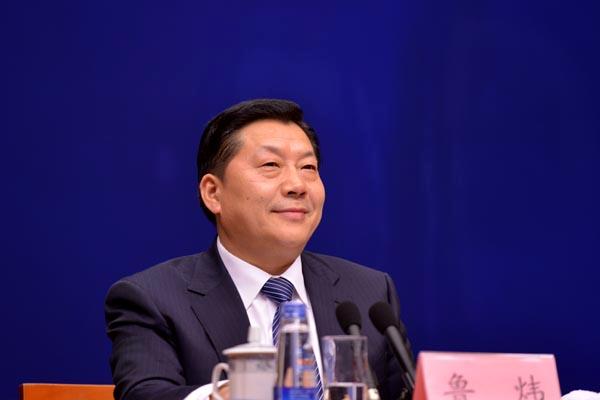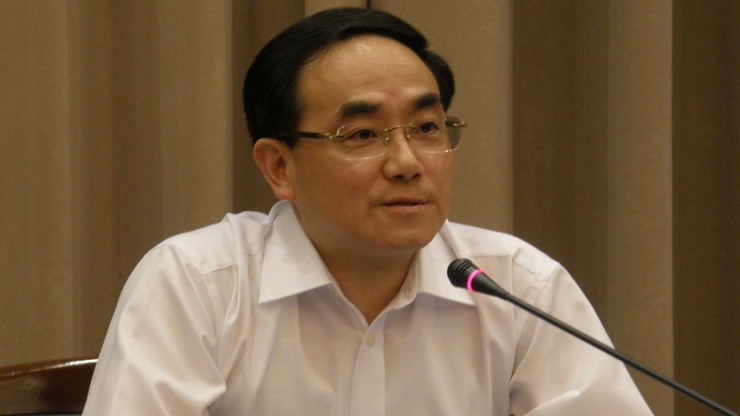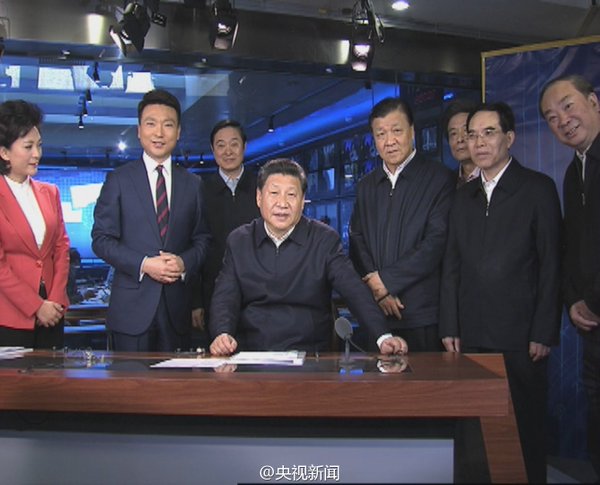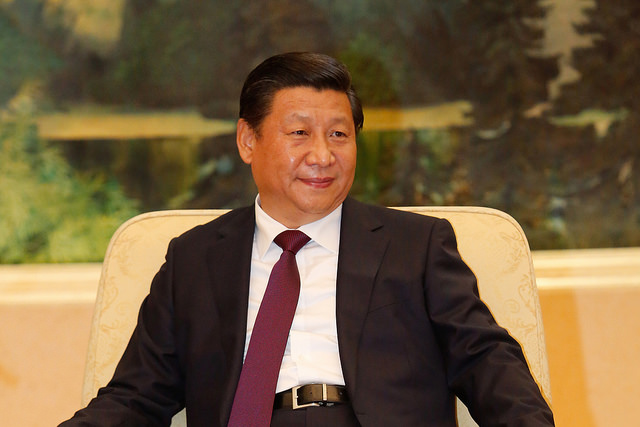China’s official Xinhua News Agency confirmed Wednesday that Xu Lin, a deputy director at the Cyberspace Administration of China (CAC) since June last year and formerly propaganda chief of Shanghai, will take over from Lu Wei — the high-profile cyber chief who famously met with Facebook CEO Mark Zuckerberg during a visit to the US in 2014 — as head of the powerful internet control and regulatory body.

The official release from Xinhua was brief, announcing the news without explanation or context before providing a bulleted list of Xu Lin’s past assignments: “Comrade Xu Lin will serve as director of the Office of the Central Leading Group for Cyberspace Affairs; Comrade Lu Wei will no longer serve as director of the Office of the Central Leading Group for Cyberspace Affairs.”
So far, little is known about Xu Lin, but he is rumoured to be a trusted associate of Xi Jinping, having first worked with him directly for several months when Xi was Party secretary of Shanghai. Xu Lin became a member of Shanghai’s Party committee in May 2007, just two months after Xi Jinping’s arrival from Zhejiang. Xu, then just 44 years old, was dubbed a “political star” (政治明星) in a page-one story in the 21st Century Business Herald.

Singapore’s Lianhe Zaobao reported that Lu Wei would remain in his post as a deputy director in the Central Propaganda Department.
It is not yet clear how Xu Lin will fit into Xi Jinping’s overall strategy for the internet and information in China. The Mingjing News reported hopefully today that “people anticipate that this personnel adjustment will bring a ray of light for internet development in China.”
However, those tempted to wish on a “political star” might turn to Xu Lin’s speech in November last year, in which he urged journalists to “adhere to correct guidance of public opinion, energetically propagate socialist core values, strengthen the [Party’s] mainstream voice and win their campaigns in the online public opinion struggle.”

For now, I share a translation of the May 30, 2007, story in the 21st Century Business Herald, which helps to establish Xu Lin’s connection to Xi Jinping.
“4 New “Post-60s” High-Ranking Faces Unveiled in Shanghai
By Our Reporter, Zhou Yang (周扬) / Reporting from Shanghai
Who are the leaders in this city?
On the afternoon of May 28, Shanghai Party Secretary Xi Jinping led the new leadership of the Party committee in taking the stage. Xi Jinping introduced the 13 new leaders chosen for the city’s Party committee. One attention-grabbing fact is that two members of the standing committee are young people born after 1960.
Xi Jinping revealed back at the final conference of the Eight [Shanghai] Party Congress that “a group of superb young cadres will become members of the municipal committee and the commission for discipline inspection for the new session.”
After the clean-out following the Shanghai pensions case, a youthful “new Shanghai” is appearing before people’s eyes.
Four New Faces
Four fresh faces have emerged on the new standing committee compared to before the 9th Party Congress.
This biggest “political star” is Xu Lin (徐麟).

Introducing new Party standing committee member Xu Lin, Xi Jinping said: “He is the youngest member of the leadership team, and he previously worked in Tibet.”
Publicly available materials show that Xu Lin, who is currently serving as director of the Shanghai Municipal Agricultural Commission, was born in 1963, and at the age of 29 was selected as a standing committee member and acting deputy county chief in [Shanghai’s] Nanhui County (南汇县). He later became deputy secretary of Jiading District (嘉定区). At the age of 32, he became deputy secretary of Shigatse Prefecture in Tibet, serving there for 3 years.
As the first Shanghai cadre to serve in Tibet, 35 year-old Xu Lin returned to Shanghai to serve as the general manager of Shanghai Nong Gong Shang Group (上海农工商集团), and later as Party branch chief and CEO.
At the age of 40, Xu Lin was appointed as director of Shanghai’s Civil Affairs Bureau. According to Pan Leiqing (潘烈青), a division head at the Civil Affairs Bureau who previously worked together [with Xu], at the end of 2006 the Organisational Department of the Central Committee of the CCP made an inspection visit of the Civil Affairs Bureau, and Xu Lin hadn’t been moved over from the Agricultural Commission.
“At the time the people from the Organisational Department stayed here with us for a number of days, and they spoke with every director-level cadre, asking about the situation with Xu Lin,” Pan Lieqin said. “The Organisation Department mostly asked us about questions of character, ability, diligence and performance.”
Pan’s impression was that “Xu Lin’s abilities in terms of decision-making and coordination and organisation were all strong. We all felt he was a workaholic.”
